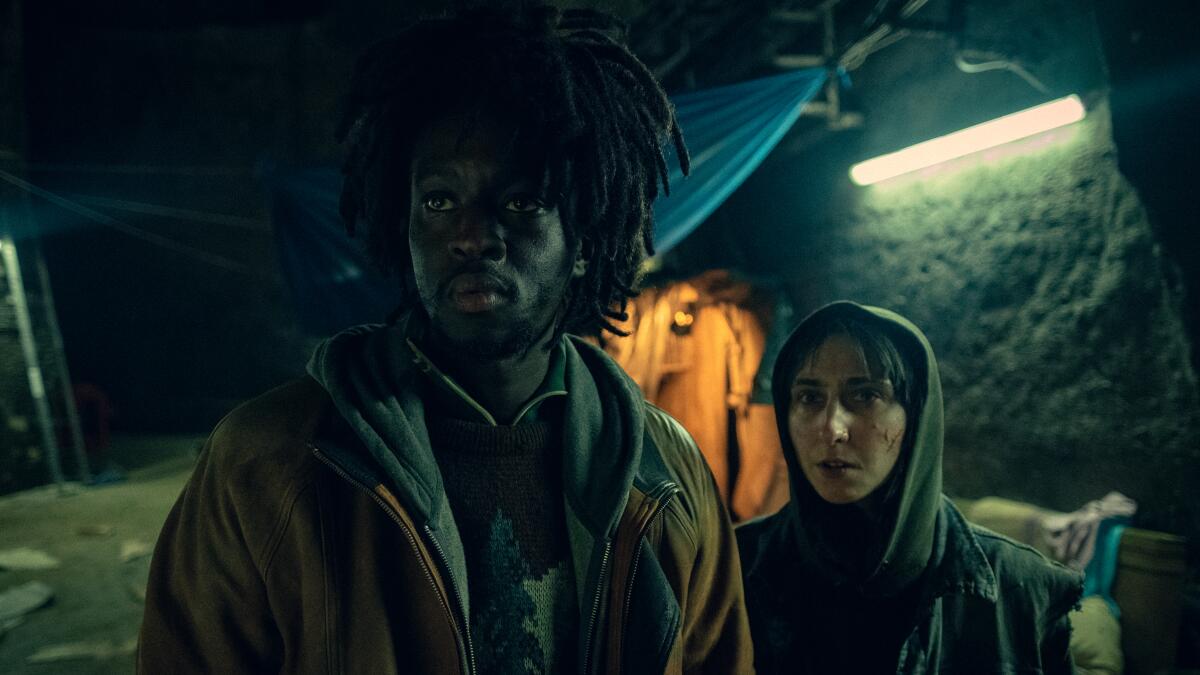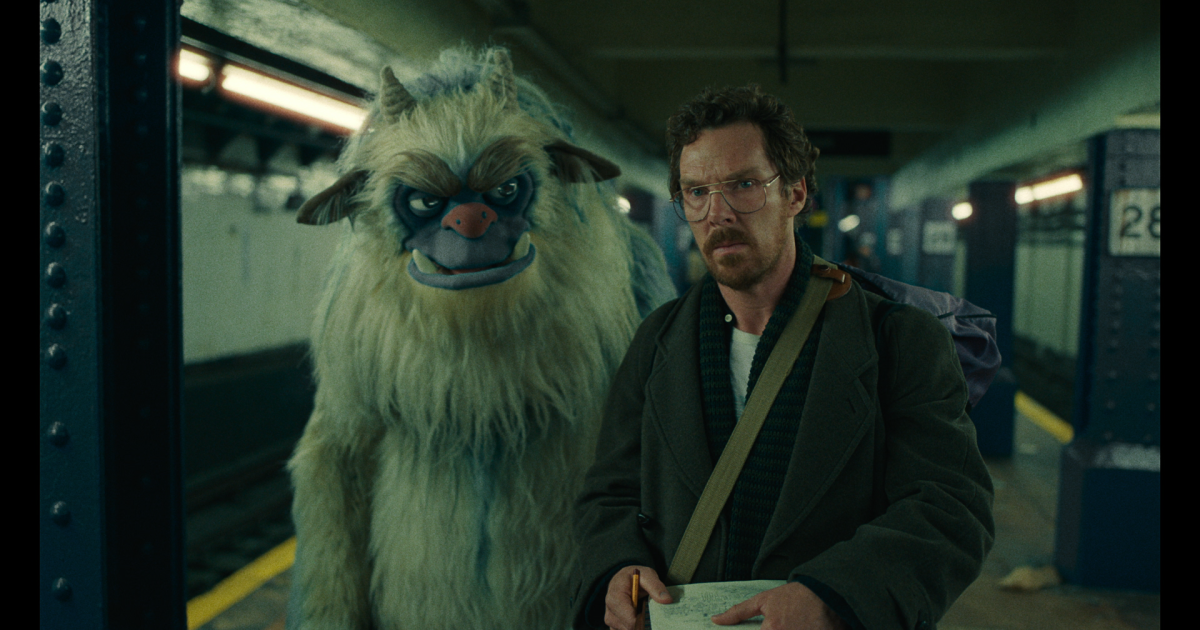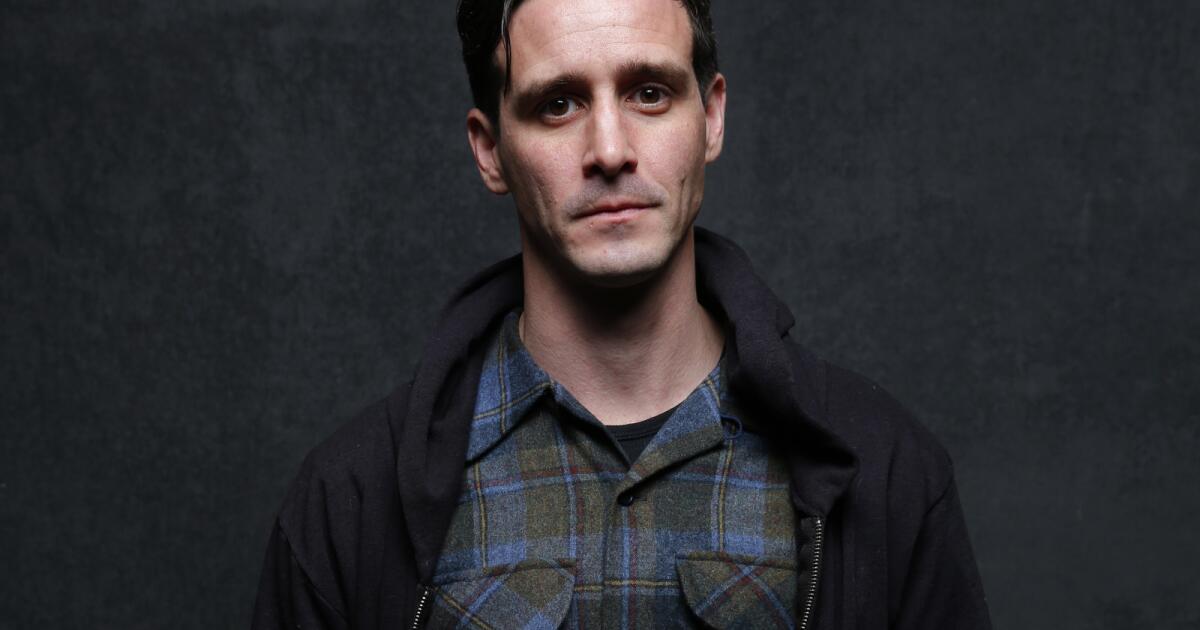“Eric,” a limited series premiering Thursday on Netflix, stars Benedict Cumberbatch, with an American accent, as Vincent Anderson, a Jim Henson-brand puppeteer, if Henson had serious mental health issues, a problem with alcohol and drugs and on top of that, he was just kind of an angry, selfish idiot. Henson is mentioned in passing, so we're not supposed to confuse the two, despite Vincent's beard. (Coincidentally, Disney+ will premiere Ron Howard's documentary “Jim Henson: Idea Man” on Friday, making that distance clear.)
The setting is 1980s New York City, in its graffiti and trash heyday, and to be fair, Vincent is just one asshole among many. There are corrupt politicians, corrupt police, corrupt garbage collectors, unreliable street people, human traffickers and drug dealers. Vincent's parents, who are rich, are also idiots. The Big Apple, baby! (To keep the balance, there is a good father, a good police officer, and a good street person.)
The driving force of the plot, written by Abi Morgan (creator of the excellent British media drama “The Hour”), is the disappearance of Vincent's 9-year-old son, Edgar (Ivan Morris Howe), which places Vincent, his wife, Black, gay, and closeted in a homophobic environment, Cassie (Gaby Hoffmann) and missing persons detective Michael Ledroit (McKinley Belcher III) move toward their intertwined individual destinies. It's not a spoiler to mention that Edgar is on his own trajectory.
Cassie (Gaby Hoffmann) and Vincent (Benedict Cumberbatch) play a couple in a troubled marriage whose son has disappeared in “Eric.”
(Ludovic Robert/Netflix)
Vincent is the brains behind “Good Day Sunshine,” a decade-old television show filled with puppets, set in a park in an idealized inverse of the city. (Not original like “Sesame Street”). Ratings are declining and the fate of the show, which exhorts children to “be good, be kind, be brave, be different,” seems to depend entirely on Vincent finding a solution. new puppet that, says producer Lennie (Dan Fogler), will somehow “bridge the gap between preschoolers and elementary schoolers,” because “that's where the cool kids are.” (Kindergarten, apparently).
Vincent doesn't like this idea at all, or any idea that isn't his own, and he can't help but express his discontent, in either thinly veiled or extremely overt terms. (He's especially concerned about the idea that any of his characters could beatbox, which is a misreading of the times.)
But this is not a story about children's television, although the details of the production and the puppets are quite convincing. It's a mystery wrapped in a family drama wrapped in a police procedural, embellished with elements of fantasy and social issues. These include the AIDS epidemic, unequal treatment by police and the media of black victims of crime, gentrification at the expense of the poor, homelessness, and the sexual exploitation of minors, with a wink dramatically gratuitous, yet historically accurate, to “the free blacks.” The Americans and the Irish and German immigrant populations” who were moved from their homes to build Central Park almost at the last minute. All that and a plate full of red herrings.
Before his disappearance, Edgar, known in the studio and with precocious artistic skills, drew up plans for a new “walking” puppet, a furry blue monster he calls Eric, a mix of Maurice Sendak Wild Thing, Sulley from “Monsters Inc. ” and Sweetums from the Muppets, hoping he will help save “Good Day Sunshine.” Later, upon discovering Edgar's drawings, which he had scared his son into not showing him, Vincent begins building the puppet in the hopes that putting Eric on television will bring Edgar back, and he hallucinates his presence. as a constant, intimidating and critical companion.
I say “hallucinate” (and there are passing references to some kind of crisis in Vincent's past), but the imaginary companions are always functionally real on screen. Eric is invisible to the world, though never to us; Vincent gets a few looks when he talks to him, usually with irritation, but no one suggests that what he really should see is a doctor.
Seeing a man suffering, surely we must feel for Vincent at least a little, but he is so constantly annoying for so many hours, so rude not only to the suits in power but to the people on his team, that it is possible that You have trouble empathizing. (That's not how Henson did it.) “How can you have everything going on in your life and still make it difficult for people to have basic sympathy for you?” Lennie asks, speaking for at least one viewer. The sorry state of her marriage is obviously largely her fault, and also responsible for Edgar's disappearance, when he leaves alone, unsupervised, while his parents argue.

Bamar Kane as Yusuuf, with Alexis Molnar as Tina, is a compassionate man living in the New York City subway tunnels, in “Eric.”
(Ludovic Robert / Netflix)
Serving as a temperamental counterweight to Vincent is Det. Ledroit, a good guy who, when not working overtime to find Edgar, takes care of his partner while he dies from an AIDS-related illness. And he's determined to investigate a possible connection to the earlier disappearance, in the same neighborhood, of an older black boy, whose mother (Adepero Oduye, in one of the series' most subtle performances) prowls the police station for help. . and without expecting anything. (Interestingly, no one is suggesting that a ransom demand could be filed, although Vincent is famous and his father is a wealthy developer.)
Cumberbatch has Vincent on high most of the time, but he's surrounded by quieter performances from a top-notch cast. I especially liked Bamar Kane as Yuusuf, who lives in the subway tunnels and is perhaps Morgan's least predictable character; Erika Soto as Tina, a sympathetic secretary at the New York Police Department; the always magnificent Clarke Peters as George, the doorman at Vincent's building; and Wade Allain-Marcus as Gator, who runs a club called Lux, suspiciously located between Edgar's house and his school, which generically represents the excesses of 1980s Manhattan nightlife and where many characters will find significant points of the plot.
For a series with puppets, a missing child, and a father in need of redemption, there are only a couple of possible endings, no matter how twisted the path, that won't make you curse the six hours you spent getting there, no matter how sentimental and simplistic. How could that end be? And “Eric” goes there, bravely.












